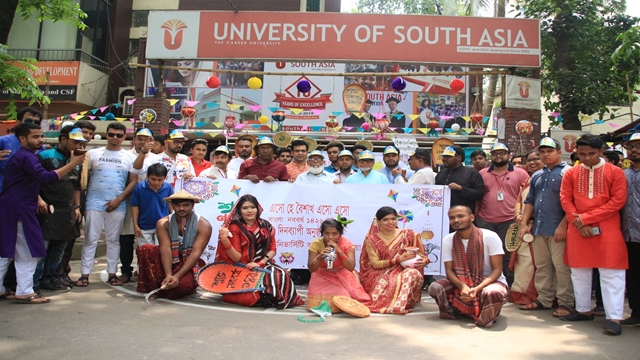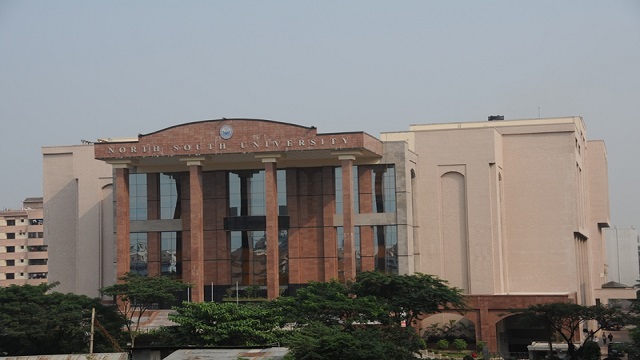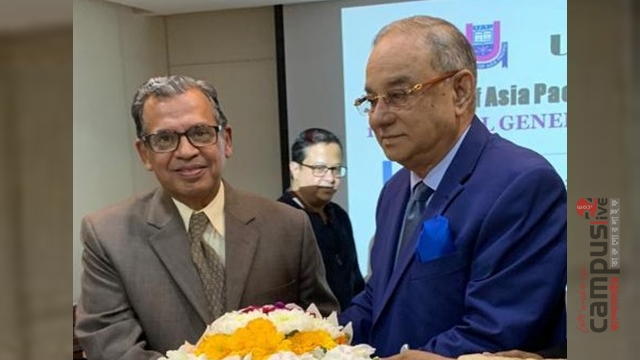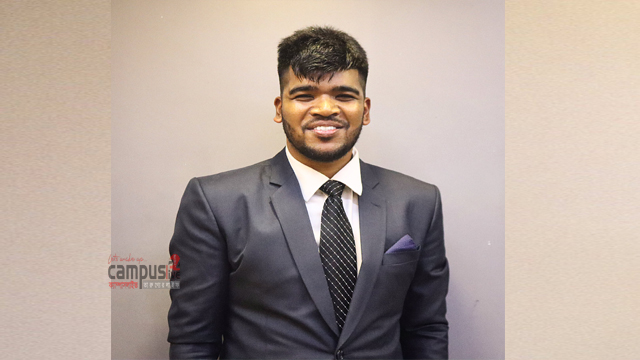What BD can expect from the new mega Regional Comprehensive Economic Partnership
Published:
2020-12-11 16:18:08 BdST
Update:
2024-04-27 07:58:10 BdST
NSU Live: The South Asian Institute of Policy and Governance (SIPG) and the School of Business and
Economics (SBE) of North South University organized a webinar titled "Regional Comprehensive
Economic Partnership (RCEP) Challenges and Options for Bangladesh" on 10th December, 2020.
Distinguished panelists discussed in depth what the Asian regional/sub-regional trading initiatives
challenges are and what it holds for bilateral and regional Free Trade Agreements (FTAs) across
Asia-Pacific.
RCEP is a manifestation of the ASEAN countries’ willingness and ability to expand their economic
sphere and engagements in a complex, evolving, and dynamic geopolitical formations.
Dr. Abdul Hannan Chowdhury, Dean, School of Business and Economics, North South
University and Dr. Sk. Tawfique M. Haque, Director, SIPG, North South University delivered the
welcome speech.
From the panel, Professor Gour Gobinda Goswami of Department of Economics, School of
Business and Economics (SBE), North South University pointed out how RCEP will create new
challenges for Bangladesh due to the import relations it has with the member countries. He
emphasized that even if this partnership may not seem to be a potential channel of growth for
Bangladesh in the short run, we should research on the benefits the country can reap in the future
from this mega regional partnership.
Barrister Nihad Kabir, President, Metropolitan Chamber of Commerce and Industry (MCCI)
addressed how Bangladesh is unfortunately not a member of many effective bilateral/ regional
trade agreements. She urged that we need to acknowledge our successful records and be bold
and proactive when it comes to the fast pace trade agreements taking place in the global arena.
In his discussion on the role of social clause in trade, Mr. Farooq Ahmed, Secretary General,
Bangladesh Employers Federation (BEF), said how trade and politics is inseparable.
Mr. MJH Jabed, Director General, South East Asia, Ministry of Foreign Affairs, Bangladesh
urged not to look into FTAs only in term of tariff, there are bigger multiple factors which thus
makes this a regional partnership.
Mr. Taufiqur Rahman, Head, LDC Unit, Development Division WTO, Geneva, said, that from the
trade perspective Bangladesh may not be impacted negatively in the short run however since it is
an economic partnership in the long run there will be more factors other than trade that benefits
the member countries of RCEP.
Dr. Selim Raihan, Professor, Department of Economics University of Dhaka and Executive
Director, South Asian Network on Economic Modeling (SANEM), shared one of his concerns of
Bangladesh losing competitiveness due to the internal trade flexibility between the member
countries of RCEP. He added that Bangladesh has a lot of work to do to now to attract large FDIs
in the future - urging on the needs to enhance the current Intellectual Property Rights structure.
Mr. Iftakharul Islam, Chairman and Co-Founder of Asian Tiger Capital Partners mentioned how
RCEP will have profound impact on regional and global chains and it is more crucial for
Bangladesh to now diversify the export industries, utilize the current structures and link it with
these new global chains.
SIPG's Senior Fellow and former Foreign Secretary, Ambassador Shahidul Haque
moderated the discussion. He mentioned that this agreement might open windows of collaboration
and benefits for Bangladesh.
Professor Atiqul Islam, Vice-Chancellor of NSU and the Chair of the webinar said, Bangladesh
should consider being part of RCEP as it might help the country to gain more international profile.
He encouraged the experts to produce the necessary policies that supports this integration.
Dhaka, 1o December (campuslive24.com)//bsc
Topic:









Share Your Valuable Comments: